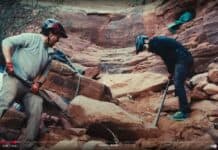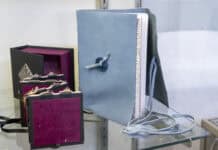The Sedona City Council on Tuesday, Nov. 10, approved $1.3 million in improvements to its wastewater treatment plant.
The improvements, which have been discussed for months, involve upgrading the dry beds at the treatment plant.
Carollo Engineers presented council with four options that ranged in cost from $850,000 to $4.7 million, and the city staff recommended approving the $1.3 million option.
Councilwoman Nancy Scagnelli wanted to know how long the dry beds would last, and was told there were times when they lasted 20 years.
“It’s $1.3 million today, and in another 15 years it would be another $1.3 million (plus inflation),” she said.
What concerned Council-woman Pud Colquitt was the possibility the Arizona Department of Environmental Quality could change its regulations at any time.
“We have to be very careful we choose something that lasts 10 years,” she said.
Council was informed it could expect the dry beds to have a longer life. Council members were also told the type of weather the area receives will impact the beds’ longevity.
Mayor Rob Adams shared Colquitt’s concerns about ADEQ, but was told the city would not be affected as long as they kept up the dry beds and treatment plant.
Adams also wondered why the $750,000 proposal ended up being $850,000, and he was told by the engineering group that the extra $100,000 is the result of piping that needed to be replaced because of its condition.
Council briefly discussed going with the $1.6 million project, but it was told by Assistant City Manager Alison Zelms the $300,000 in additional expenditures would have to be recouped in some way, such as raising sewer rates for residents.
Colquitt said city staff’s recommendation was the one the council needed to approve.
“It gives us 10 years before we have to look at it again,” she said.
Carollo Engineers informed the city the dry beds would probably last about 10 years before needing to be replaced.
Colquitt said another reason to choose the $1.3 million project over the more expensive ones was not knowing when or if ADEQ was going to change its requirements.
“We don’t have to spend that amount of money right now,” she said, adding treatment plants are constantly changing how to do things.
“They have a life,” she said. “We are trying to be very careful with the money.”
Michael Maresh can be reached at 282-7795, ext. 125, or e-mail mmaresh@larsonnewspapers.com




















